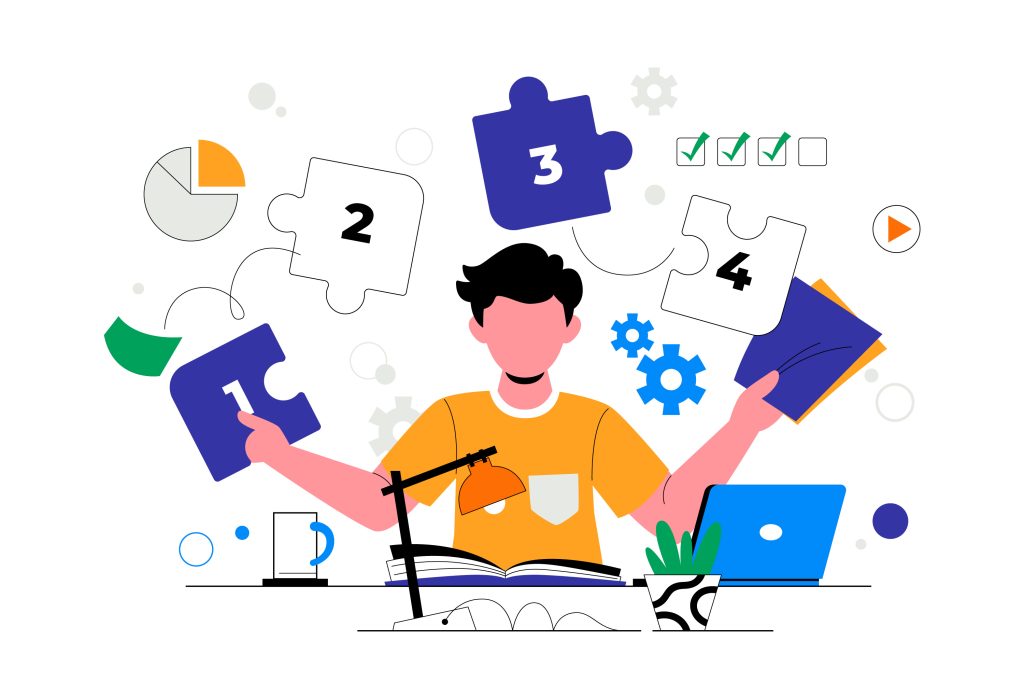Cracking aptitude and skill tests is a key step for students and job seekers aiming to succeed in campus placements and recruitment exams.Whether you’re preparing for an engineering job interview, a placement drive, or a career opportunity through platforms like LinkedIn, aptitude, logical, and verbal skill tests often determine whether you advance to the next stage.
These assessments are not just about testing your knowledge—they measure how you think, process information, communicate effectively, and manage time under pressure.

Mastering these skills requires the right blend of practice, strategy, and self-management. In this guide, we’ll explore actionable techniques to ace these tests, improve performance, and confidently showcase your capabilities. Along the way, we’ll also show you how Impacteers Skill Assessment can make your preparation smarter and more effective.
Visit us >>>https://www.impacteers.com/home/skillassessment
Why Skill Tests Matter More Than Ever
In today’s competitive job market, employers don’t just want degrees; they want evidence of your skills. Aptitude, logical, and verbal assessments help recruiters:
- Evaluate problem-solving ability in real-time situations.
- Assess communication skills—both written and verbal.
- Identify quick thinkers who adapt well under time constraints.
- Predict workplace performance beyond academic achievements.
For engineers, managers, or creative professionals, acing these tests can open doors to opportunities—from campus placements to leadership roles.
Breaking Down the Three Core Assessments
1. Aptitude Tests
- Purpose: Measure numerical ability, data interpretation, and analytical thinking.
- Example Questions: Speed-distance problems, profit & loss, number series.
- Tip: Always read the question twice; small details can change the entire answer.
2. Logical Reasoning Tests
- Purpose: Evaluate decision-making, pattern recognition, and analytical logic.
- Example Questions: Seating arrangements, puzzles, syllogisms.
- Tip: Visual aids like diagrams can speed up your process.
3. Verbal Ability Tests
- Purpose: Assess grammar, vocabulary, reading comprehension, and sentence formation.
- Example Questions: Error spotting, fill-in-the-blanks, paragraph completion.
- Tip: Strong communication skills can set you apart from equally qualified peers.
Step-by-Step Strategy to Ace Skill Assessments
Step 1: Understand the Test Format
Every assessment test is different. Some have negative marking; others prioritize speed over accuracy. Before you start preparing:
- Go through sample papers or practice tests.
- Note the weightage of each section.
- Adjust your preparation time accordingly.
Step 2: Build a Strong Foundation
Your preparation should be structured:
- Aptitude: Learn formulas for quick calculations; practice mental math daily.
- Logical: Solve at least 2-3 reasoning puzzles a day.
- Verbal: Read news articles and write summaries to boost comprehension.
Step 3: Practice with Timers
Time management is the biggest challenge in any skill assessment.
- Use a stopwatch while practicing.
- Train yourself to skip tough questions and return later.
- Avoid spending more than 90 seconds on any single question.

Step 4: Use Impacteers Skill Assessment for Smart Prep
While free resources are helpful, personalized assessments are game-changing.
Impacteers offers real-world skill assessment tests tailored to your career goals—whether that’s engineering aptitude, logical thinking, or communication improvement.
With their detailed feedback, you can:
- Identify strengths and weaknesses instantly.
- Get targeted practice recommendations.
- Improve faster than with random practice questions.
Step 5: Develop a Thinking Process
Top performers don’t just answer; they think methodically:
- Read → Plan → Solve → Verify
- Use elimination techniques in multiple-choice questions.
- Break complex problems into smaller steps.
Step 6: Improve Self-Management Skills
Your mindset during the test can make or break your score.
- Get enough rest before the exam.
- Eat light, healthy meals to avoid fatigue.
- Keep a calm, steady pace instead of rushing.
Step 7: Boost Communication Skills for Verbal Tests
- Practice speaking about technical topics in simple language.
- Engage in mock interviews to refine your delivery.
- Learn 3-5 new words daily and use them in sentences.
Step 8: Review and Reflect
After each practice session:
- Note the mistakes you made.
- Revisit similar problems to avoid repeating errors.
- Track improvement over time.
Common Mistakes to Avoid in Skill Tests
- Ignoring Instructions – Many candidates lose marks because they miss small details.
- Overconfidence – Skipping revision because “you already know it” can backfire.
- Poor Time Allocation – Spending too much time on one question.
- Neglecting Weak Areas – It’s tempting to focus on your strengths, but weaknesses drag your score down.
Daily 30-Minute Prep Routine
If you’re busy with work or college, here’s a quick plan:
- 10 min – Aptitude problem-solving.
- 10 min – Logical puzzles.
- 10 min – Reading and verbal exercises.
Why Impacteers Skill Assessment Gives You an Edge
Unlike generic tests, Impacteers offers:
- Tailored questions based on your career path.
- Instant analysis of time taken per question.
- Suggestions to improve speed, accuracy, and confidence.
Whether you’re an engineering student preparing for campus recruitment or a professional upskilling for a promotion, Impacteers Skill Assessment helps you prepare smarter—not just harder.
Visit Impacteers Skill Assessment to start your journey.
Frequently Asked Questions (FAQs)
1. How can I improve my time management during aptitude tests?
Practice with a timer and prioritize easier questions first. Review your speed regularly to track progress.
2. What’s the best way to prepare for logical reasoning questions?
Break down problems visually with diagrams or flowcharts, and practice pattern-based puzzles daily.
3. How important are verbal skills in assessment tests?
Very important—strong communication shows employers you can convey ideas clearly and think critically.
4. Can I prepare for all three test types at the same time?
Yes. Use a balanced study plan that dedicates time to aptitude, logical, and verbal exercises each day.
5. Why choose Impacteers Skill Assessment over free resources?
It offers personalized insights, career-specific practice, and real-time performance tracking—features free resources rarely provide.
Conclusion
Acing aptitude, logical, and verbal skill tests isn’t just about hard work—it’s about smart preparation, self-management, and continuous improvement. By combining proven strategies with Impacteers Skill Assessment, you can transform your preparation process into a targeted, effective journey toward success.
Your next big opportunity might just be one test away—prepare like it’s already yours.
Learn More >>> https://blog.impacteers.com
About Us >>> https://www.impacteers.com



Post Comment